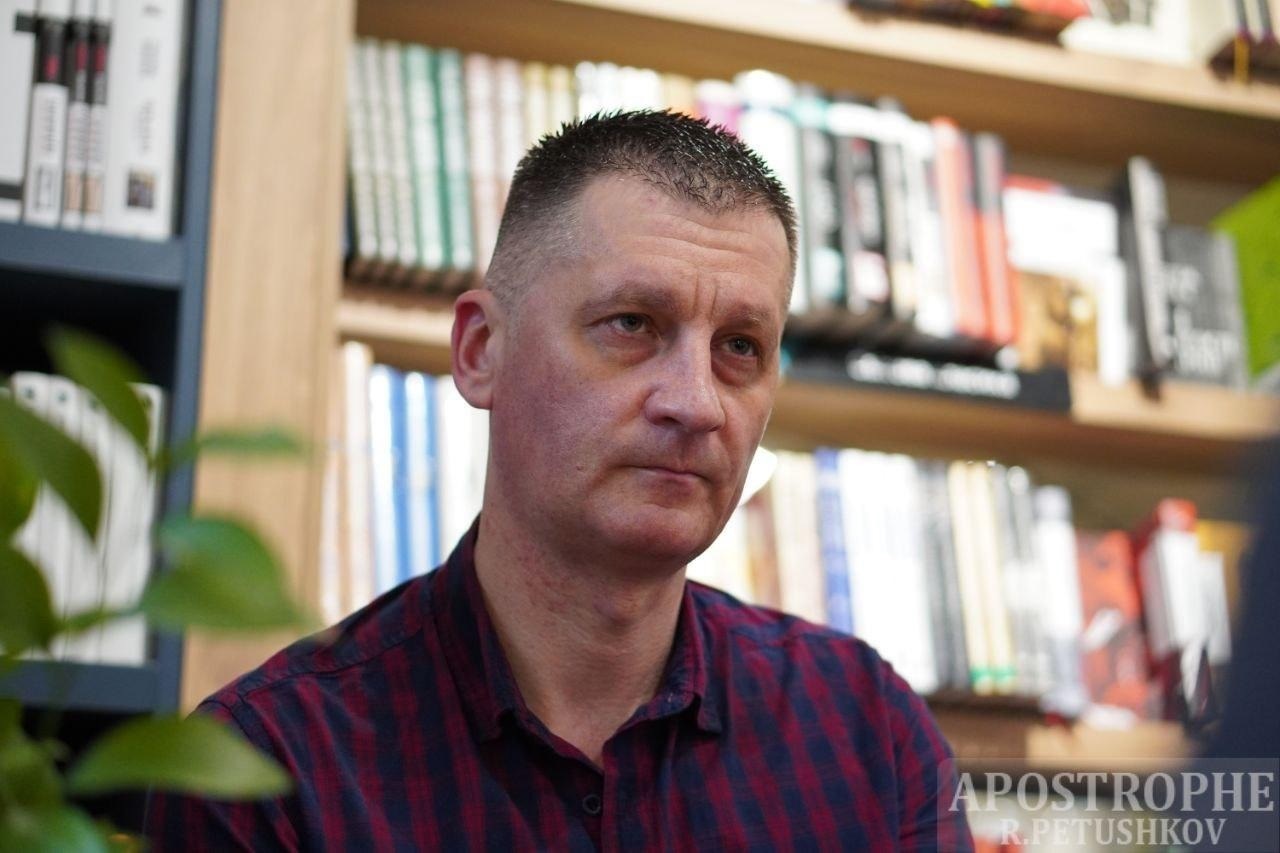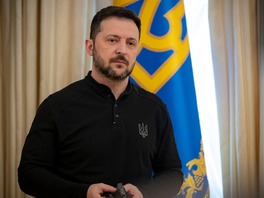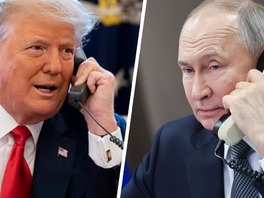Alongside its military conflict with Russia, Ukraine is also engaged in a rigorous information war. This battle involves countering the comprehensive influence operations that Russia is deploying against Ukrainian society. Colonel YEVHEN SASKO, who served as Ukraine's former Deputy Commander of the Special Operations Forces and led the Strategic Communications Department of the General Staff, discussed with Apostrophe how Ukraine's information forces manage under tough conditions and explained the Kremlin's significant investment in propaganda and psychological operations
– In the first year of the full-scale invasion, Ukraine successfully controlled the narrative both domestically and in the Western media, and even managed to influence the Russian information sphere by spreading demotivational content like images of destroyed tanks and military units. However, the current situation has reversed, with Russian psychological operations (PSYOPs) now significantly ramped up within Ukraine. What could be the reasons behind this shift?
– Psychological operations typically don't produce immediately observable effects and are rarely publicly discussed in terms of successes. Both Ukrainian and Russian successes in this area are usually communicated through confidential channels, reserved for classified or official use only.At the onset of the full-scale invasion in 2022, Russian society was psychologically unprepared for intense and active military engagement. As a result, it was relatively straightforward to infiltrate the information space of the Russian Federation, which was a key target for us.
Additionally, the Ukrainian society and the global community, outraged by the egregious actions of the Russian Federation, united in support of Ukraine. This solidarity persists, but a key focus of Russian information campaigns is to disrupt this unity, particularly among leading world nations that are aiding Ukraine in the conflict.
At the start of the conflict, numerous civilian experts in information technology, both from Ukraine and other countries, volunteered their assistance in various capacities. Moreover, both the PSYOP forces and the Special Operations Forces, including those involved in the Resistance Movement in occupied territories, were active in the information space. Anticipating a full-scale phase of the conflict, we had prepared in advance for these engagements.
At the beginning of the war, what likely shocked the average Russian were the graphic images of bloodshed, human remains, and destroyed military equipment, which initially entered their information space with relative ease. It might still be possible to penetrate their information space now, but it has become absolutely closed off. Nevertheless, targeted psychological operations can still reach Russians. Yet, doing so effectively would require consistent and comprehensive efforts to shake up their information space.
– How important are point newsbreaks here?Early in the conflict, Ukraine benefited from having footage of its military units effectively destroying Russian convoys. Presently, Russia faces issues such as flooding entire regions due to breached dams. Can Ukraine capitalize on this?
– Certainly, it would be a mistake not to leverage such informational opportunities. I believe they are being utilized. Similarly, the Russian side exploits every possible negative event in Ukraine, within Ukrainian society, and across all states.
However, it's important to remember that military activities are deeply interconnected with societal life. The target audience can include individuals from both the socio-economic and military sectors. The skill to bridge these target audiences effectively is a key attribute of a proficient psychological operations specialist.
 Yevhen Sasko (right)
Yevhen Sasko (right)
– Indeed, there's a case from Ukrainian last year's counteroffensive. In the early phases, aggressively broadcasting information successfully demoralized the enemy. However, it eventually backfired due to inflated expectations of the Ukrainian society. Why did this happen?
– I'll put it this way: successful operations, whether offensive or defensive, unite both society and the soldiers of the Armed Forces. In a successful army, processes such as self-inspiration occur, allowing it to advance despite suffering losses.
Regarding those events, I think it's too early to make judgments. Perhaps we'll revisit this question later, once history has settled. But it's important to understand that these are living people who protect our state, it cannot protect itself.
We are still engaged in war. We need to focus our information efforts on uniting Ukrainian society, building psychological resilience and readiness among our military units, and, of course, aiming to weaken the enemy’s resolve.
– By the way, speaking of the enemy's morale and PSYOPs, can we discuss any current results?
– Yes, we can. Even the Americans have noted that due to our successful PSYOPs, tens of thousands of enemy personnel have retreated. However, these effects didn't occur instantly—like dropping leaflets and watching an entire enemy brigade abandon their posts overnight. The disintegration of enemy units happens over time and under specific conditions. These are psychogenic losses: Russians stay in positions for a long time. Many killed, dead, letters from home, calls home. All these factors need to be comprehensively assessed. There are indeed successful instances, but I'm not at liberty to discuss the details yet.
The leading countries of the world look at our experience
– The Ukrainian army ranks among the strongest in Europe. Can we claim the same about our information warfare capabilities? Are we comparable to world powers in this field?
– The Armed Forces of Ukraine are among the global leaders in combat experience and equipment. Even regarding psychological state and morale, they excel despite the usual challenges any combat army faces.
Regarding PSYOPs, I led the relevant department, and I can attest that since 2014, we've accumulated significant experience in executing special operations within the information space. Despite all disrespect towards the Russian Federation, it must be acknowledged that we faced an extremely formidable and cunning adversary skilled in propaganda and information warfare.
At the same time, our PSYOP military units are now systematic, organized into a unified structure, and adept at applying their knowledge and skills effectively. Moreover, leading countries, including the USA, Great Britain, and others, are taking note of our experience.
– How crucial is it to grasp the Russian mentality? Do we understand Russians better than the Chinese or the Americans do?
– Mentality is crucial. They are, in a way, mentally close to us, yet the divide between us widens daily. Indeed, we can communicate in the same language, if we choose. But the Russian Federation is a crazy country with a zombified leadership and an equally crazy population.
Since the onset of the full-scale war, the divide has only deepened. Their society is deteriorating. The intelligentsia and the elite, as you know, overwhelmingly either acquiesce to the ruling power or leave the country.
– I can't help but inquire about the Telegram mobile app. There have been occasional statements in Ukraine suggesting it should be banned. On one hand, it does influence the Ukrainian audience, facilitating the spread of Russian narratives. However, on the other hand, almost all our authorities have channels on Telegram. Is it prudent for Ukraine to ban it?
- I wouldn't do this. It's better to properly utilize existing methods and develop our own channels. It might be feasible to block specific Russian channels, but fostering competition helps build our own strength. Banning it... People will still seek out information, they'll still look for news.
– How do the resources we allocate to PSYOPs compare with those of the Russians? I'm not asking for specific figures, but rather the general scale of investment.
– In Russia, the scale is insane, almost beyond belief. While we do allocate resources for psychological operations, they fall short of meeting all our needs. The enemy operates both abroad and within its own borders, allocating significant funds towards influencing Ukraine.
The scope of Russian psychological operations extends well beyond military PSYOP units within the Armed Forces. Their efforts are multifaceted and intense. Notably, they emphasize cyberattacks and comprehensive information campaigns. High-ranking officials like Oleksiy Gromov and Serhiy Kiriyenko from the Administration of the President of the Russian Federation are directly involved in these operations. Additionally, organizations such as "Rossotrudnichestvo," ostensibly focused on humanitarian cooperation, and Russian cultural houses abroad, are also engaged in these efforts. The Russian Orthodox Church plays a role in information attacks and PSYOPs as well. Russia leverages opinion leaders, including TV channels and newspapers, which are distributed globally. These operations represent substantial financial investments.
Regarding our information space, it has been "hardened" against the enemy's influence, much like theirs. You brought up the topic of Telegram channels, and indeed, there is a segment of Ukrainians who turn to these channels. They typically seek out these sources when there's a perceived lack of information from our side. Ukrainians begin to follow Russian military correspondents when they're uncertain about what's happening on various fronts in Ukraine. In essence, if we ensure our information channels are richly supplied, people will turn to our content.
- How unified and coordinated are all these Russian sources of PSYOP?
– At the strategic level, there are clear contradictions among them, especially between the Kremlin's "towers" (various centers of influence within the Kremlin that have differing views on how to conduct the war– Apostrophe). We take note of these discrepancies with interest. While they do have capable strategists who plan sophisticated strategic information operations, the execution often falters as it moves down the chain. Signals get lost, there are misunderstandings, leading to execution that is, to put it mildly, subpar. Regarding military units specialized in psychological operations, theirs are notably ineffective. Ours, in my opinion, are more effective.
– When discussing Russian propaganda in the West, it's clear it's active, but how effective is it really?
– Considering the activity of certain right-wing forces in the European Union, who are gearing up for elections to the European Parliament, as well as the voters of some politicians in the USA, I can say that it is yielding results and having an impact.
Overall, their efforts are intricately structured. There is a distinct focus on different regions: Europe, Latin America, the United States, and Africa, all of which receive substantial budgets and vast human resources. Groups of opinion leaders are cultivated. Consider the impact when each country has multiple agents of influence from the Russian Federation. This indicates systematic and carefully coordinated work.
How effective are they? I think not as much as it used to be.Russia already carries an extremely negative image in the view of the global community. There are documented instances where Russian propaganda activities have been highlighted and exposed. Additionally, any interference in a country's affairs, even through cyberspace, is still interference. Aware nations recognize this. Moreover, many countries have implemented programs specifically designed to counteract Russian disinformation efforts.
– But in the public sphere, there is an impression that they are not actively opposing such operations from Russia.
– Perhaps there is a lack of experience, determination, and activity. It's possible that there are other priorities, or maybe I'm not fully aware, and there is actually effective work being done in that area.
We posses advanced experience
– There is an opinion that for most information special operations take cues from the United States, often regarded as the most advanced in this field. Do you believe they're truly that far ahead? And where do we stand compared to them?
– In terms of systematizing acquired experience and its application, they are advanced, comparable to us. Why? When it comes to psychological operations specifically, they tend to use them more tactically and on a targeted basis. We apply them at the tactical, operational, and strategic levels, with integration all of them.
 Yevhen Sasko
Yevhen Sasko
We can deploy military tactical groups at forward positions, and they are supported from base points by PSYOP tactical groups operating in the information space. Tandem? Tandem.
We draw on leading practices from the Americans. They educate and support us, but as I've mentioned before, they also learn from our best practices. Specifically, the methods we use to target individual Russian servicemen and their units, including influencing their family members and close associates. We explore how effective these approaches are and how they sometimes fail. We also develop strategies to influence broader community objectives. All these tactics are meticulously analyzed by our partners. This demonstrates that, without false modesty, we are carriers of the best experience and adept at applying our psychological knowledge in operations against the enemy.
– What recent shifts have you observed in Russian PSYOP tactics?
– As usual, they pinpoint issues within Ukrainian society and attempt to exacerbate them. I would do the same, and we have done so as well. Currently, the most significant social issue in Ukraine that the Russians are exploiting is mobilization. This is a sensitive area for any society engaged in war, and it's a common challenge for any army at war.
The Russians produce well-crafted videos designed to demotivate Ukrainians from joining the Ukrainian army. However, the key question is about the distribution channels for these materials and whether they actually reach their intended audience—ordinary Ukrainians of military age. I encounter this Russian content because it's part of my job to do so. I receive these Russian videos through internal channels sent by colleagues. But I do not share these videos on Ukrainian Telegram channels to test the reaction of the Ukrainian audience. If I need to analyze the effectiveness of a PSYOP, I test it on Russian channels. Ukrainians do not see it.
– You pointed out how adversaries exploit societal issues. With that in mind, I'd like to ask about mobilization. It's understood that everyone should serve in the military. But why did we provide the Russians with the opportunity to capitalize on the fears and reluctance of Ukrainians to join the armed forces?
– I wouldn't say we provided some ooporunity. We have an army of one million, and it needs further conscription. . People at the front and in the rear are getting tired, especially since a war of such intensity does not happen so often in the world. The same thing happens with Russians, and it could happen in any other society. The problem is that now we don't have enough people at the front. Those who wanted to take up arms are already there. It’s exceedingly difficult to mobilize those reluctant to join. Yet, it's crucial to understand that a state cannot safeguard itself without its military.
– In Ukraine, we have examples like the highly motivated 3rd Assault Brigade and others that have been successful in promoting mobilization. In fact, there are queues of people eager to join the ranks of these military brigades and get to the front.
– In the army, much depends on the commander. This Brigade is a good team – daredevil in the good sense, resilient, capable of advancing. Their experience, by the way, is also used by other brigades.
– There's been much discussion about the severe risks that using smartphones on the frontline presents to Ukrainian soldiers. Is it practical to implement an effective ban on these devices there?
– I believe it is unstoppable. We live in an information society. If a soldier wants to take photos and videos, they should be allowed to. However, there needs to be informational hygiene to ensure that soldiers do not capture images of their positions, locations, equipment, and so forth.
This needs to be clearly communicated to the troops. If they don't grasp the importance, then confiscating the phone becomes necessary. However, this approach also leads to grievances where a soldier might complain about their phone being taken away or being prohibited from making TikTok videos. It's a delicate balance to maintain.





